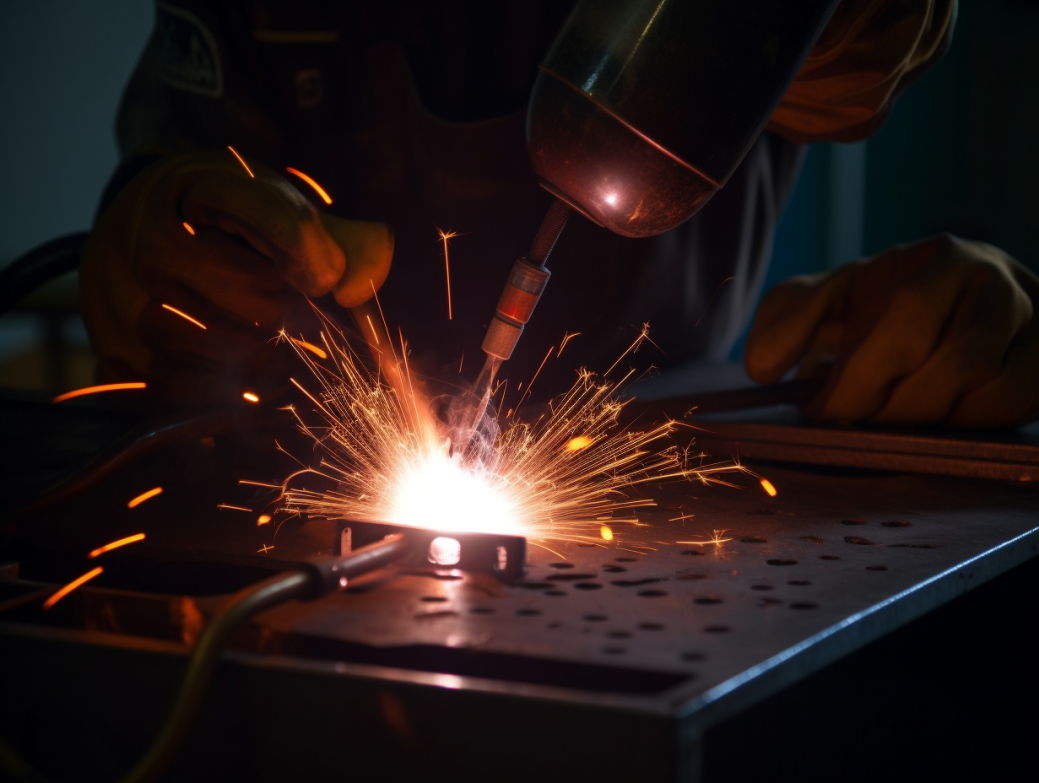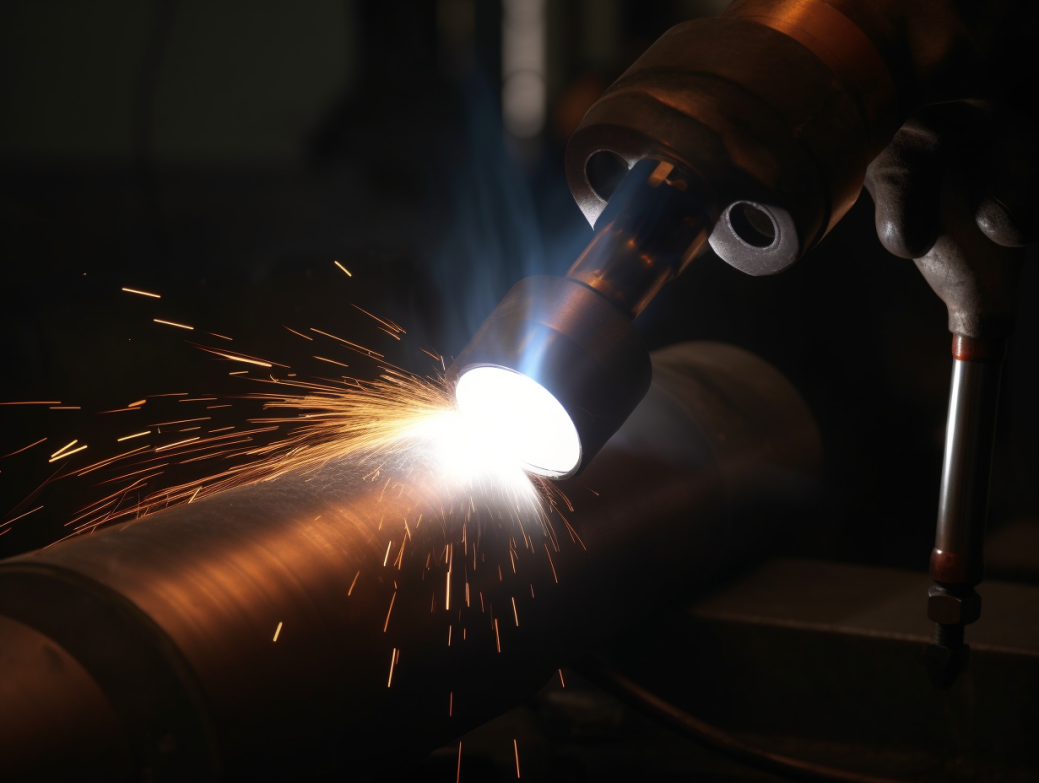Gas Tungsten Arc Welding (GTAW), commonly known as tungsten inert gas (TIG) welding, is an arc welding technique that employs a nonconsumable tungsten electrode to generate the weld. The weld composition is supplemented with filler metal from an external source, usually in the form of a bare metal filler rod. Precise heat control is achieved, and the weld area is safeguarded from environmental impurities by employing an inert gas shield, such as argon. While a filler metal is typically utilized, certain autogenous welds do not necessitate its use. GTAW/TIG welding is renowned for its accuracy, producing visually appealing, distortion-free welds of exceptional quality, making it desirable for applications like aerospace and automotive manufacturing.
GTAW stands for Gas Tungsten Arc Welding, which is also known as TIG (Tungsten Inert Gas) welding. It is a welding process that utilizes a non-consumable tungsten electrode, an electrical power source, and a shielding gas to join metal workpieces together.
In GTAW welding, a tungsten electrode is held in a welding torch. The electrode does not melt or burn as it has a high melting point. Instead, the electrode creates an electric arc between itself and the workpiece. The arc generates intense heat, which melts the workpiece and creates a weld pool.
To protect the weld area from atmospheric contamination, a shielding gas (typically argon or helium) is used. The shielding gas flows through the torch to surround the arc and the weld pool, preventing oxidation and ensuring a clean weld. Additionally, a filler metal wire may be added manually to the weld pool to improve its strength and quality, if needed.
GTAW welding offers precise control over the welding process, allowing for high-quality welds on various metals, including stainless steel, aluminum, copper, and alloys. It produces clean and aesthetic welds with minimal spattering and can be used for both manual and automated welding applications. GTAW is commonly used in industries such as aerospace, automotive, and high-precision manufacturing.

Gas tungsten arc welding (GTAW), also known as tungsten inert gas (TIG) welding, offers several advantages:
1. High-quality welds: GTAW produces precise and clean welds with exceptional quality. It offers excellent control over heat input, resulting in minimal distortion and aesthetically pleasing welds.
2. Versatility: GTAW can be used to weld a wide range of materials, including stainless steel, aluminum, nickel alloys, copper, and more. It allows for welding of thin materials as well as thicker sections.
3. No flux required: Unlike some other welding processes, GTAW does not require flux. This eliminates the need for flux removal and reduces the risk of weld contamination.
4. Superior weld properties: GTAW welds are known for their strength, ductility, and corrosion resistance. They exhibit excellent mechanical properties, making them suitable for critical applications.
5. Precise control: GTAW provides precise control over the weld parameters, such as heat input and weld penetration. This allows for better control over the welding process and ensures consistent results.
6. Minimal spatter and sparks: GTAW produces minimal spatter and sparks, which helps to avoid damage to the base metal surface. It maintains a clean and tidy work environment.
7. All-position welding: GTAW is suitable for welding in various positions, including horizontal, vertical, and overhead orientations, providing flexibility in welding applications.
8. Gas shielding: The use of inert gases like argon or helium in GTAW provides effective protection to the weld pool, preventing atmospheric contamination and resulting in high-quality welds.
Overall, GTAW offers exceptional precision, versatility, and quality. As a professional supplier of sheet metal welding services, HSJ manufacture with 20years experience ,making it a preferred choice for industries requiring high-quality welds, such as aerospace, automotive,Cabinets ,Chassis box and specialized metalwork. If you are in need, don't hesitate to contact us!

One of the main disadvantages of GTAW (Gas Tungsten Arc Welding) is its relatively slower welding speed compared to other welding processes. The precision and control offered by GTAW often require more time to create a weld, making it a slower process overall. The slower welding speed can result in longer production times, making GTAW less efficient for projects that require high productivity or large volumes of welds.
Additionally, GTAW requires a high level of skill and experience to perform effectively. The process requires precise control of the welding torch, filler metal, and shielding gas flow. It demands steady hands, good hand-eye coordination, and knowledge of proper techniques for achieving high-quality welds. The need for skilled welders can increase labor costs and limit the availability of qualified operators.
Furthermore, GTAW is generally not suitable for thicker materials or heavy structural welding. It is more commonly used for thinner materials, intricate welds, and applications where superior weld quality and appearance are critical. When it comes to heavy-duty applications, other welding processes like SMAW (Shielded Metal Arc Welding) or GMAW (Gas Metal Arc Welding) may be more suitable due to their higher deposition rates and better penetration capabilities.
Overall, while GTAW offers many advantages like excellent weld quality and versatility, its slower speed and specialized skill requirements may limit its practicality in certain welding applications.